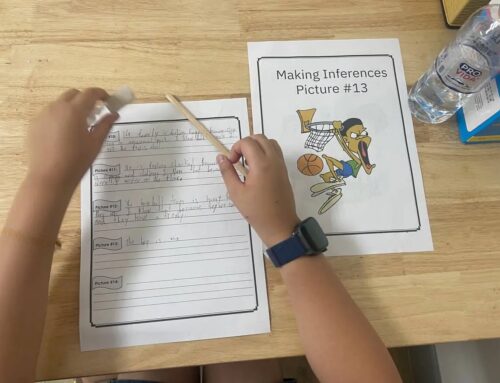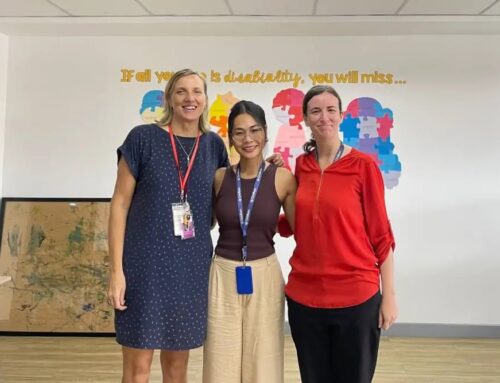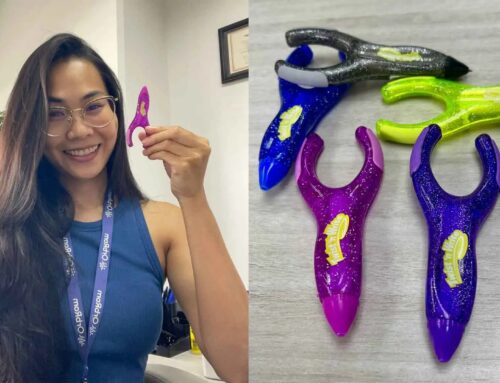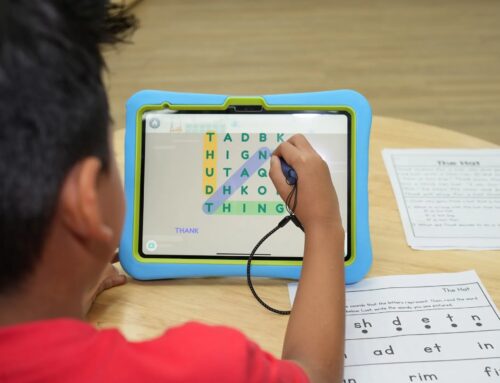[ad_1]
When little hands get stronger, big changes happen. Occupational therapy in Phnom Penh helps children develop the fine motor skills, sensory regulation, and hand–eye coordination they need for real-life success—tying shoes, using utensils, writing legibly, and managing classroom tools with confidence. At OrbRom Center, our child-friendly approach uses playful, structured activities that strengthen tiny muscles while supporting attention and self-regulation—so progress shows up at home, school, and in the community.
Why Fine Motor Skills Matter (More Than You Think)
Fine motor skills power daily independence. Children who struggle to grasp a pencil, fasten buttons, or open lunch containers often feel frustrated, avoid tasks, or fall behind academically. Occupational therapy breaks complex tasks into manageable steps and uses graded challenges to build strength, precision, and endurance—without pressure. Our Phnom Penh therapists focus on the building blocks: shoulder stability, core strength, bilateral coordination, and an efficient tripod grasp, then layer in visual-motor integration so writing and drawing become smoother and more automatic.
To see how we translate these foundations into meaningful gains, explore our Occupational Therapy service page. If you’re unsure whether your child needs therapy, a targeted evaluation via Assessments can clarify next steps and chart a plan that fits your family.
What a Typical Session Looks Like at OrbRom Center
In our Phnom Penh clinic, sessions feel like play—because learning sticks best when children are engaged. Your child might:
-
Build hand strength with clay pinches, tweezers, and clothespins.
-
Practice bilateral coordination through cutting, lacing, and two-handed games.
-
Improve motor planning with obstacle courses and sequencing challenges.
-
Regulate energy and attention with short bursts of heavy work before seated tasks.
Parents receive simple at-home routines to reinforce clinic gains. For example, try these helpful reads: Scissor Skills (how cutting unlocks coordination), Proprioceptive Activities (body-awareness “heavy work”), and the classroom benefits of a well-designed Sensory Room.
From Play to Pencil: OT Strategies That Work
1) Strength first, precision next.
Writing demands stable shoulders and strong fingers. We prime muscles with vertical surface drawing, weight-bearing animal walks, and clay kneads. Then we move toward controlled pinches and purposeful grasps. A great home companion is our guide on strengthening hand muscles with play-dough.
2) Short, focused reps.
Children learn best in small, successful bites. We rotate quick stations—grip tools, cutting paths, pegboards—to prevent fatigue and keep motivation high. This also builds endurance for longer classroom tasks.
3) Sensory regulation as a springboard.
Attention improves when the nervous system is calm and organized. A few minutes of pushing, pulling, or wall-pushes can prepare the brain for precision work. Want to understand why? See our primer on how sensory play supports child development in Phnom Penh.
4) Visual-motor integration.
Tracing on vertical whiteboards, mazes, and pattern blocks strengthens the eyes-hands teamwork needed for smooth letter formation and spacing.
5) Functional goals first.
We always connect therapy to what matters day-to-day: opening snack packs, zipping a backpack, stabilizing paper while writing, or managing scissors safely.
Signs Your Child May Benefit from OT
-
Pencil grip looks awkward or painful; hand tires quickly.
-
Letters vary in size/spacing; drawing is effortful.
-
Buttons, zippers, and food containers cause frequent frustration.
-
Avoids crafts, construction toys, or cutting tasks.
-
Meltdowns during seated work; difficulty switching between activities.
If these feel familiar, begin with an Assessment to map strengths, challenges, and a realistic therapy plan.
Why Choose OrbRom Center in Phnom Penh
Families choose OrbRom because we blend international best practices with local context—tailored goals, family-friendly coaching, and collaboration with schools. We track progress session-by-session and adjust quickly so each child keeps moving forward. Many children also benefit from our integrated environment—quiet nooks for focus and dynamic spaces for active regulation—similar to what we describe in the Benefits of a Sensory Room.
When fine motor challenges intersect with attention or sensory needs, our team coordinates care. If a comprehensive developmental picture is needed, our Assessments clarify the “why” behind the behaviors so therapy targets the root skills.
Getting Started in Phnom Penh
-
Visit Occupational Therapy to learn how we personalize care.
-
Book an initial Assessment for a clear, step-by-step plan.
-
Ask about practice kits and simple routines you can use at home between sessions.
With the right support, fine motor skills improve steadily—and independence grows alongside your child’s confidence.
Random but Relevant Learning Links (5)
Conclusion: Occupational Therapy in Phnom Penh That Turns Practice Into Progress
If your child is struggling with writing, fastening, or tool use, occupational therapy in Phnom Penh can make everyday tasks feel easier and more successful. At OrbRom Center, we pair playful methods with clear goals so fine motor skills, attention, and self-care steadily improve. Small hands become capable hands—and independence follows.
[ad_2]
Source link






